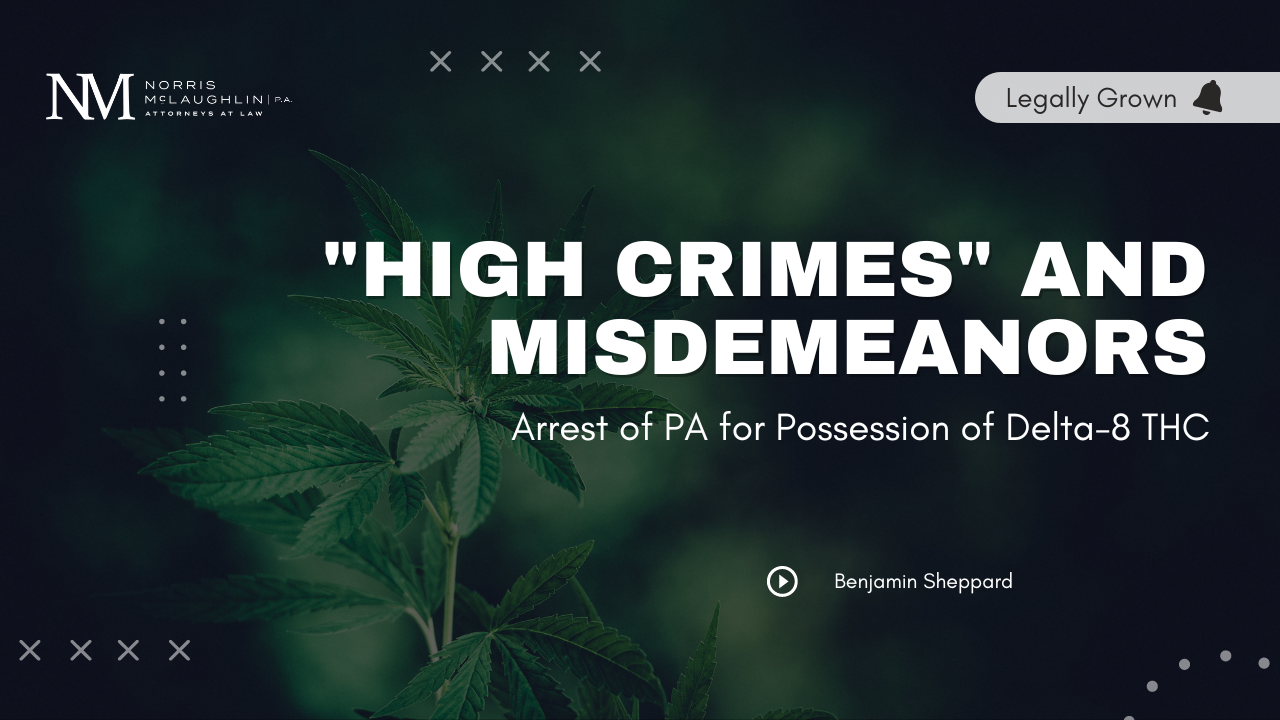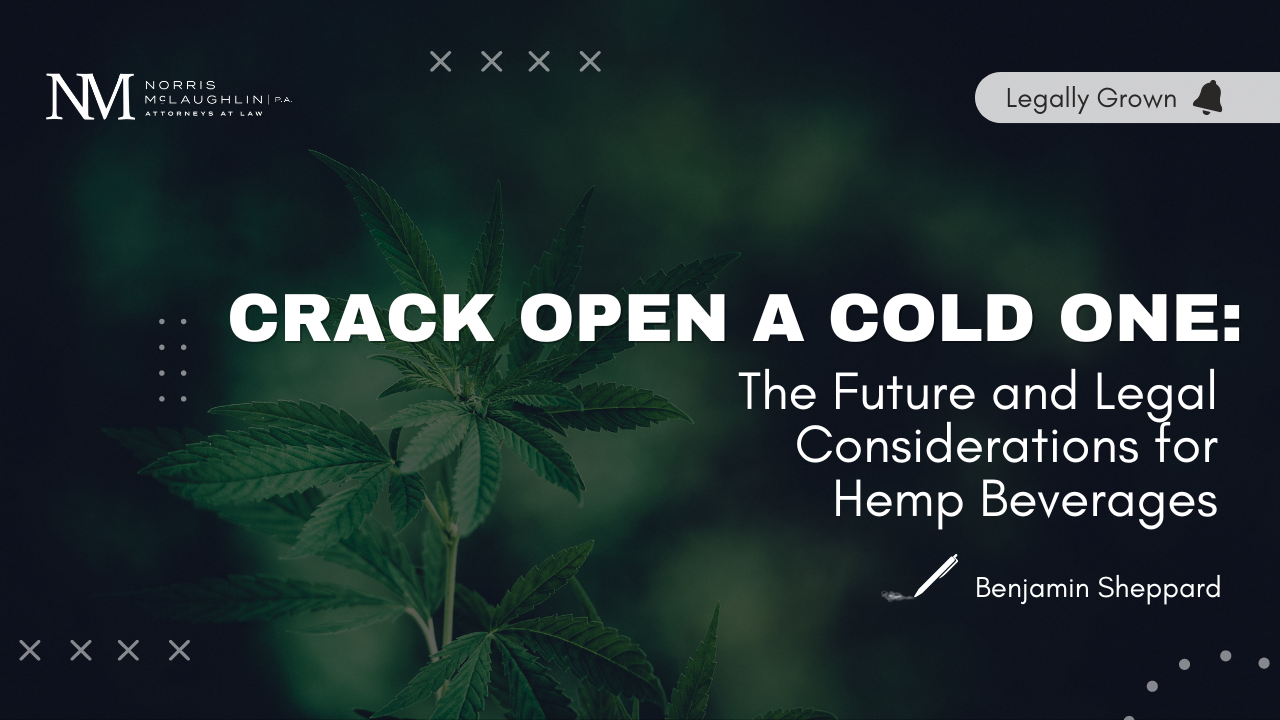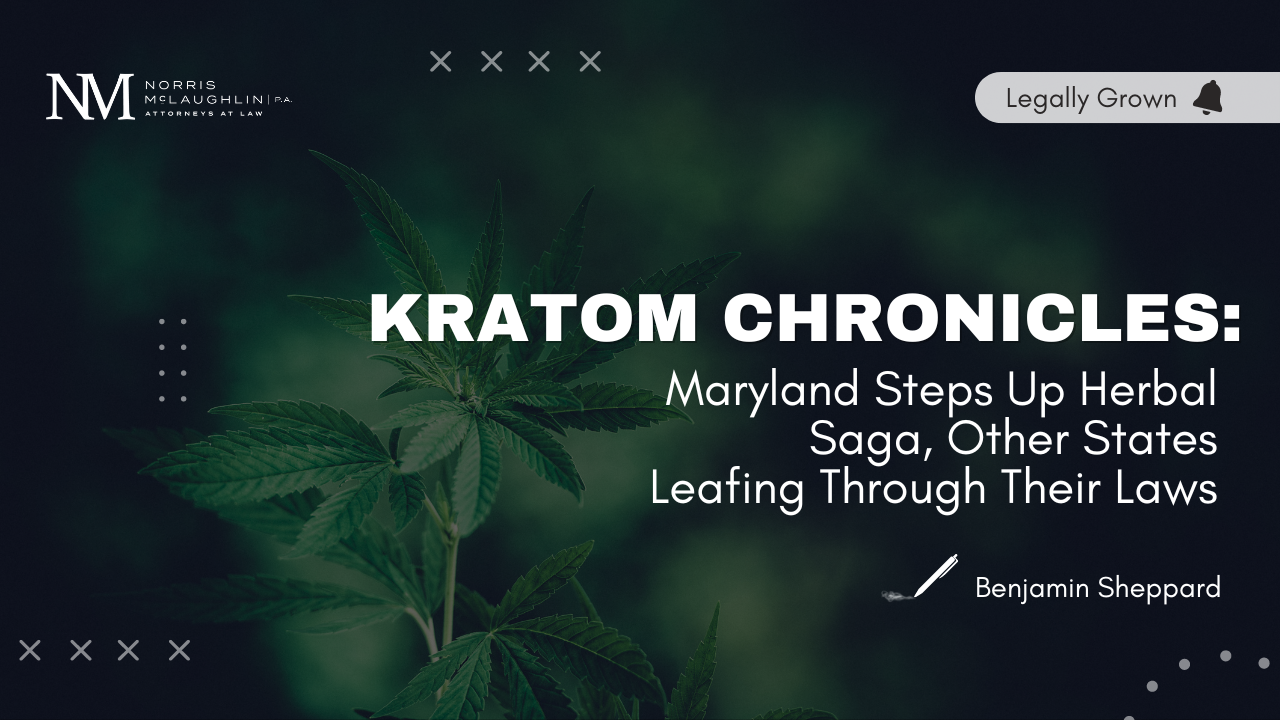“High” Crimes and Misdemeanors: Arrest of PA for Possession of Delta-8 THC

For Michael Joseph Deangelo, owner of Innovative Extracts/Our CBD Store in Hollidaysburg, August 1 proved to be anything but a holiday. On that day, a magisterial district court arraigned him on two felony charges of possession with intent to deliver and two misdemeanor charges for possessing a small amount of cannabis. The charges stem from his alleged sale of Delta-8 THC products during an undercover operation. These transactions involved selling Delta-8 THC items such as gummies and vapes, and promising users an "intense high."
Blair County District Attorney Pete Weeks contends that Deangelo broke the Pennsylvania law that mandates the concentration of THC in hemp must be less than 0.3 percent. Though Weeks holds that Deangelo broke this law, he admits he is still researching Delta-8 THC and associated issues.
This incident isn't unique. Pennsylvania has recently witnessed a series of crackdowns on Delta-8 THC products. After multiple stores throughout Lancaster County received a cease-and-desist order from District Attorney Heather Adams in June, officials raided 25 stores that sold these products, resulting in an estimated financial loss of around $300,000.
The very cease-and-desist order points out that Delta-9 hemp with a THC concentration of no more than 0.3 percent on a dry weight basis is legal. In contrast, all Delta-9 THC hemp products exceeding this concentration, as well as all Delta-8 THC products, are not.
The convoluted nature of this situation hasn't escaped notice. Even legislators like Rep. Lou Schmitt, R-Altoona, find the regulations "very confusing."
Cannabis Sativa: A Primer
Understanding the products is crucial. Cannabis plants contain THC, which induces psychoactive effects. These plants fall into two categories based on THC levels:
- hemp plants, and
- marijuana or cannabis plants.
Marijuana plants contain more than 0.3 percent Delta-9 THC on a dry weight basis, while hemp contains less than that. Therefore, hemp is used primarily in industrial applications and doesn't typically produce a “high.”
Often, manufacturers extract certain compounds from hemp. For instance, CBD, which produces a relaxed feeling without psychoactive effects, is commonly obtained through CO2 extraction.
Delta-9 THC commonly appears in hemp and cannabis plants, while Delta-8 THC, which is present in smaller quantities, differs from Delta-9 THC only in its double bond placement. It produces a less intense high, hence the nickname “diet weed.”
Manufacturers synthesize Delta-8 THC due to its low natural occurrence. Synthesis involves a chemical process called isomerization, using a catalyst in the form of either p-Toluenesulfonic acid (PTSA or pTsOH) or another acid. The goal is to close a ring on the CBD molecule.
Governing Law
Under Title X of the Farm Bill, hemp, including its “derivative, extract, or cannabinoids,” was federally legalized by removing it from the Controlled Substances Act. Not surprisingly, Delta-8 THC manufacturers viewed federal legalization of hemp as a go-ahead for their products. However, a Ninth Circuit case – concerning the registration of a trademark for Delta-8 THC products – has been the only notable legal guidance, deeming Delta-8 THC a federally legal product.
In Pennsylvania, hemp is legal if its THC concentration doesn't exceed 0.3 percent on a dry weight basis. The law doesn't specify the legality of derivatives, extracts, or cannabinoids, however.
With this background, keeping in mind how people view this process is key. On one hand, the process just described sounds like brewing beer, which is also a highly regulated industry in Pennsylvania. Beer is created from a variety of ingredients: mash malted grains in heated water to convert starches into fermentable sugars, then boil with hops for flavor and bitterness. Cool the wort, pitch yeast, and ferment until desired alcohol content and flavor profile are achieved. On one hand, this is similar to how Delta-8 THC is made, as certain ingredients (hemp and CBD) undergo a chemical process to manufacture a new product.
On the other hand, some might argue that legalization applies only to hemp in its natural form. Any attempt to alter hemp from its natural form is impermissible. One possible analogy is to compare this to the FDA’s 2010 warning to Phusion Projects, the producer of Four Loko, against the infusion of caffeine in their alcoholic drinks. Altering the chemicals in Four Loko could have led to “hazardous and life-threatening situations,” as caffeine masks the effects of alcohol, especially when the ABV was already 12% per can.
It follows that certain Pennsylvania district attorneys are following this type of analogy to protect hemp only in its natural form. Delta-9 THC is legal under Pennsylvania law; however, the state law, unlike federal law, is silent regarding derivatives, extracts, or cannabinoids. As such, the law protects only Delta-9 THC in its natural state, not derivatives like Delta-8 THC.
A Path Forward
Such a murky legal landscape leaves businesses in a bind. With differing opinions among district attorneys and no clear guidelines, sale of these products is a legal gray area, where possession and sales of Delta-8 THC may lead to arrests or product confiscation—subject to inconsistent enforcement.
The growing appetite for legalized recreational cannabis, as witnessed in neighboring states, should lead Pennsylvania to consider how to serve its residents responsibly. Perhaps Pennsylvania could embrace these Delta-8 THC products as a precursor to legalization. The debate around hemp products could be the beginning of a larger conversation on legalization.
For information about national and state cannabis law matters and regulatory compliance, please contact our Cannabis Law Practice Group attorneys: William J. Beneduce, Esquire (wjbeneduce@norris-law.com) or Benjamin P. Sheppard, Esquire (bsheppard@norris-law.com), or contact our offices at (908) 722-0700.




